#history of corinthe from its foundations
Explore tagged Tumblr posts
Text
History of the Corinthe from its Foundations, Part 2
A room on the ground-floor, where the bar was situated, one on the first floor containing a billiard-table, a wooden spiral staircase piercing the ceiling, wine on the tables, smoke on the walls, candles in broad daylight, this was the style of this cabaret. A staircase with a trap-door in the lower room led to the cellar. On the second floor were the lodgings of the Hucheloup family. They were reached by a staircase which was a ladder rather than a staircase, and had for their entrance only a private door in the large room on the first floor.
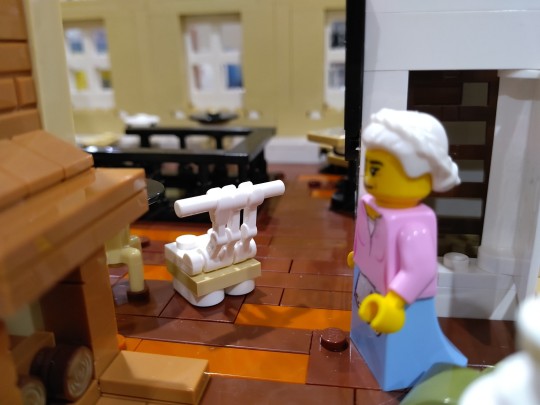
Under the roof, in two mansard attics, were the nests for the servants. The kitchen shared the ground-floor with the tap-room.
Father Hucheloup had, possibly, been born a chemist, but the fact is that he was a cook; people did not confine themselves to drinking alone in his wine-shop, they also ate there. Hucheloup had invented a capital thing which could be eaten nowhere but in his house, stuffed carps, which he called carpes au gras.

These were eaten by the light of a tallow candle or of a lamp of the time of Louis XVI., on tables to which were nailed waxed cloths in lieu of table-cloths. People came thither from a distance.

Hucheloup, one fine morning, had seen fit to notify passers-by of this "specialty"; he had dipped a brush in a pot of black paint, and as he was an orthographer on his own account, as well as a cook after his own fashion, he had improvised on his wall this remarkable inscription:
CARPES HO GRAS.
One winter, the rain-storms and the showers had taken a fancy to obliterate the S which terminated the first words, and the G which began the third; this is what remained:
CARPE HO RAS. Time and rain assisting, a humble gastronomical announcement had become a profound piece of advice.

[...] Corinthe was the meeting-place, if not the rallying-point, of Courfeyrac and his friends. It was Grantaire who had discovered Corinthe. He had entered it on account of the Carpe horas, and had returned thither on account of the Carpes au gras.
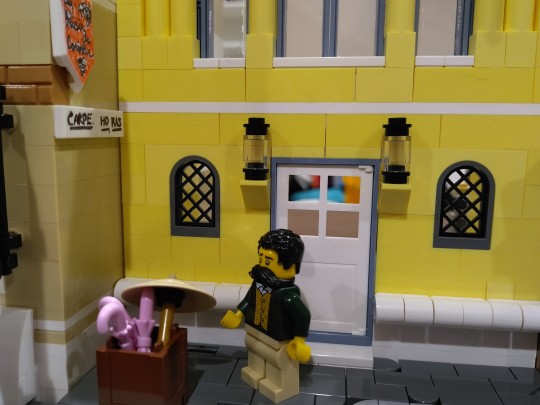
There they drank, there they ate, there they shouted; they did not pay much, they paid badly, they did not pay at all, but they were always welcome.
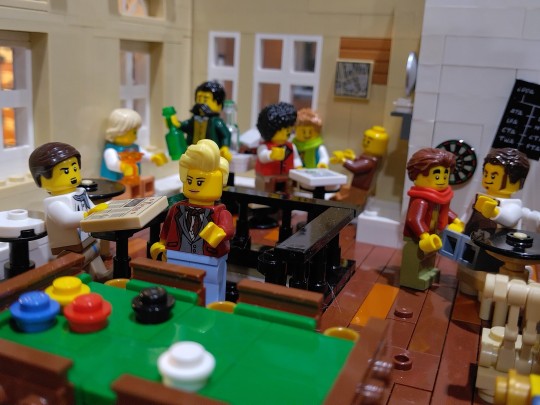
[...] About 1830, Father Hucheloup died. With him disappeared the secret of stuffed carps. His inconsolable widow continued to keep the wine-shop. But the cooking deteriorated, and became execrable; the wine, which had always been bad, became tearfully bad. Nevertheless, Courfeyrac and his friends con tinued to go to Corinthe--out of pity, as Bossuet said.
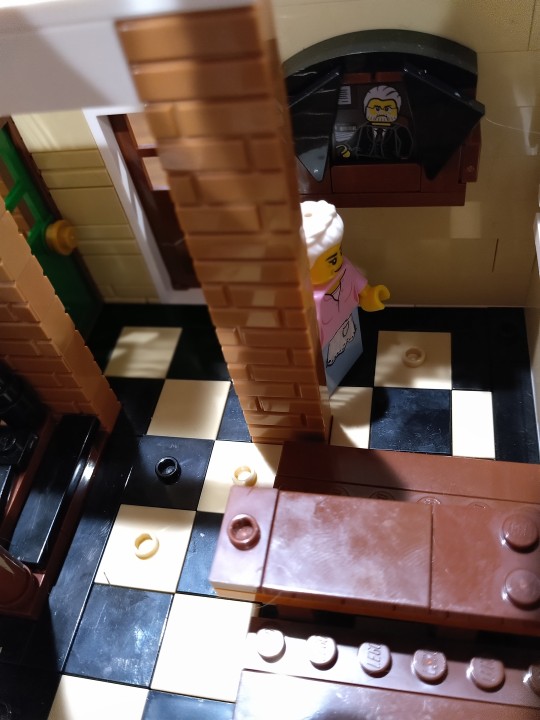
[...] The hall on the first floor, where "the restaurant" was situated, was a large and long apartment encumbered with stools, chairs, benches, and tables, and with a crippled, lame, old billiard-table. It was reached by a spiral staircase which terminated in the corner of the room at a square hole like the hatchway of a ship. This room, lighted by a single narrow window, and by a lamp that was always burning, had the air of a garret. All the four-footed furniture comported itself as though it had but three legs.
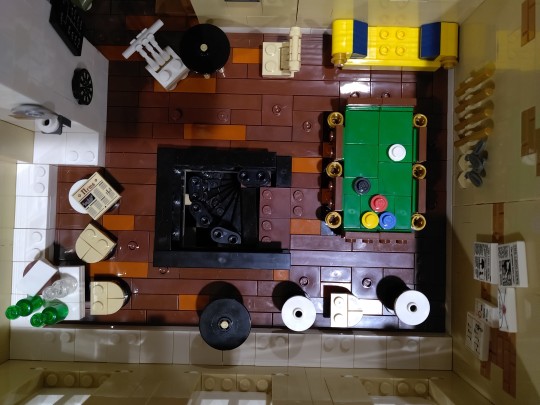
Two serving-maids, named Matelote and Gibelotte, and who had never been known by any other names, helped Mame Hucheloup to set on the tables the jugs of poor wine, and the various broths which were served to the hungry patrons in earthenware bowls. Matelote, large, plump, red-haired, and noisy, the favorite ex-sultana of the defunct Hucheloup, was homelier than any mythological monster, be it what it may; still, as it becomes the servant to always keep in the rear of the mistress, she was less homely than Mame Hucheloup. Gibelotte, tall, delicate, white with a lymphatic pallor, with circles round her eyes, and drooping lids, always languid and weary, afflicted with what may be called chronic lassitude, the first up in the house and the last in bed, waited on every one, even the other maid, silently and gently, smiling through her fatigue with a vague and sleepy smile.
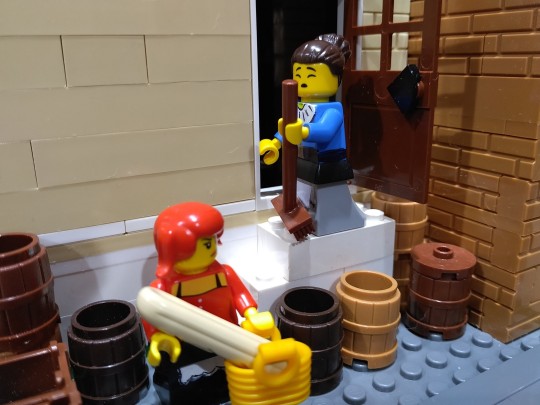
Before entering the restaurant room, the visitor read on the door the following line written there in chalk by Courfeyrac: "Régale si tu peux et mange si tu l'oses.”
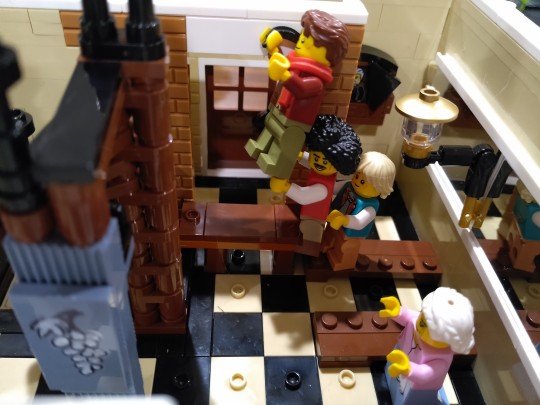
8 notes
·
View notes
Text
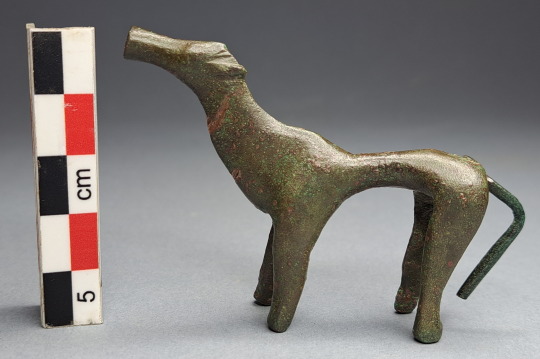
2,600-Year-Old Artifacts Found at Ancient Greek Cult Center
Around 2,600 years ago, the Greek city of Helike was destroyed when a violent earthquake and tsunami struck the region, leaving the city buried.
Archaeologists and researchers have pursued explorations of the city’s remains for decades, and recent excavations have begun uncovering more about Helike’s cult center, according to a news release from Greece’s Ministry of Culture.
Previous excavations of the site revealed an arched temple dating between 710 and 700 B.C., with a brick altar dating to 760 to 750 B.C., officials said. The latest round of excavations, from May 2 until June 23, focused on the remains of two more buildings and more religious remains.
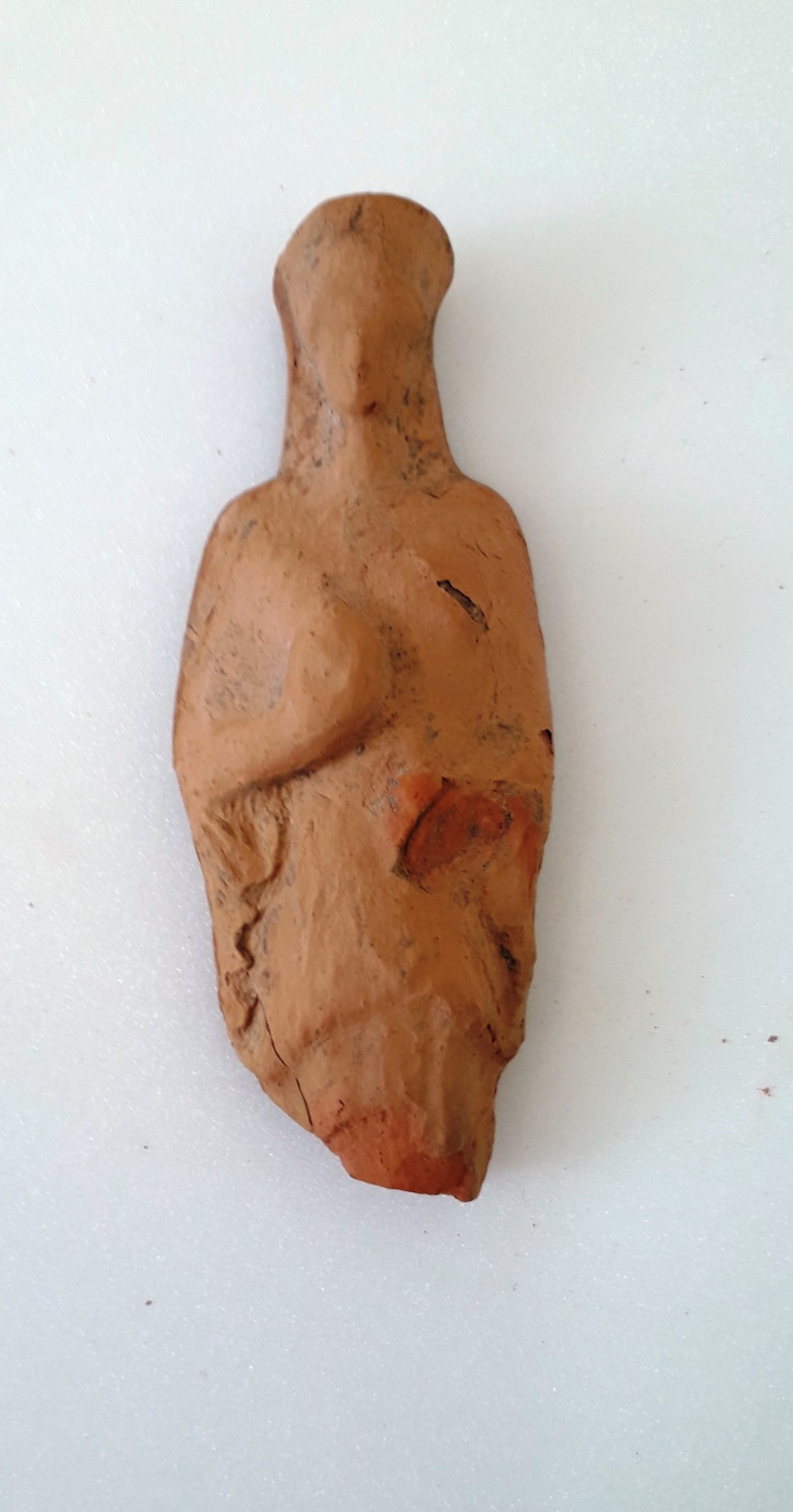
Experts said the first building they explored dates to the eighth century B.C. It had pressed soil floors and an approximately 60- to 65-foot-long wall, and it appears to have been used in three different phases.
The remains of the second building included a temple-shaped stone foundation dating to the seventh7 or sixth century B.C., officials said.
It was filled with light pottery dating to the Archaic era — which lasted from around 800 B.C. until 479 B.C., according to the World History Encyclopedia — as well as clay figurines and a bronze snake head, archaeologists said. A clay wing that belonged to a depiction of a mythological figure was also found during the excavations.
East of the two buildings, researchers unearthed a number of artifacts dating to the eighth and ninth centuries B.C. Experts said these discoveries confirm the use of the space for religious purposes as early as 850 B.C.
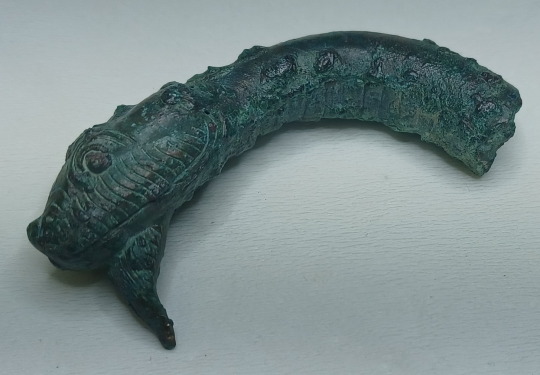
Among their finds, archaeologists identified offerings to the sanctuary’s deity — Poseidon— including clay and bronze figurines, clay chariot wheels, bronze buckles and pins, iron weapons and a rare piece of a golden necklace, according to officials. Evidence of a second deity was also found at the site.
The building remains also revealed that the area was subjected to frequent floods, experts said. This finding indicates that its residents felt a connection to the area because rather than relocating, they continued to build and rebuild the site.
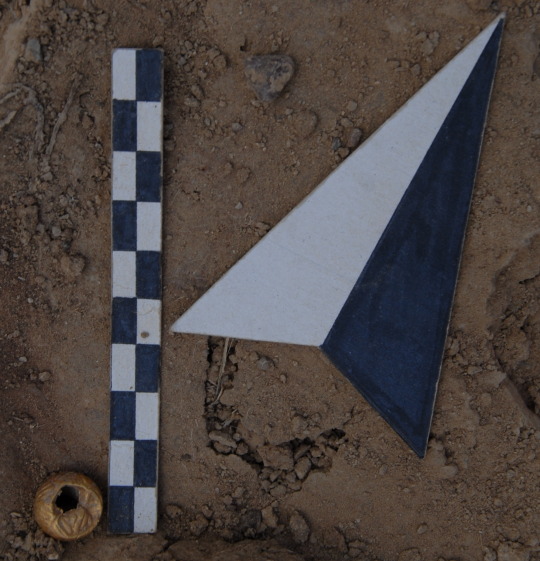
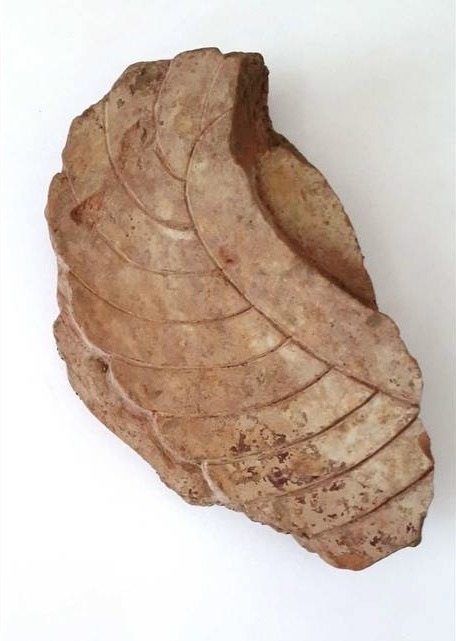
Archaeologists said they also found evidence of animal sacrifices, including goats, sheep and pigs, at the site. There was also indications of grape plant remains, pointing to the importance of wine for rituals at the sanctuary.
Helike was on the southwest shore of the Gulf of Corinth, according to the Helike Project. The Gulf of Corinth is about 66 miles northwest of Athens.
By Moira Ritter.
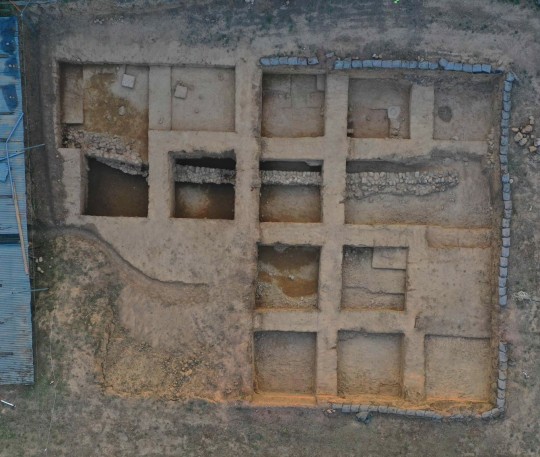
#2600-Year-Old Artifacts Found at Ancient Greek Cult Center#Helike’s cult center#ancient artifacts#archeology#archeolgst#history#history news#ancient history#ancient culture#ancient civilizations#ancient greece#greek history#greek art
172 notes
·
View notes
Text
Round 1, Matchup 143: III.iv.4 vs IV.xii.1
9 notes
·
View notes
Text
1 Corinthians 4: 1-5 Part 1
"This is how one should regard us, as servants of Christ, and stewards of the mysteries of God. Moreover, it is required of stewards that they be found faithful." (v. 1-2)
That first word servants is hupéretés and it was commonly used for sailors, bellow deck rowers specifically. So in this context is means "a subordinate executing official orders and operating under direct and specific orders"
That second word, stewards is oikonomos and it means household manager. Specifically "a slave that was released from forced/legal servitude"
Now putting this together we get "Others should logically conclude that we are a subordinate of Christ, executing His direct commands and freed from our bondage to sin, and mange His household through the mysteries revealed to us by the Holy Spirit.
What Paul was telling the Corinth church here was
They were directly under Christ's commands via His word. Paul had already in chapter 3 said "stop declaring your loyalty to me and Apollos, its to Christ"
They were freed from sin! They were no longer slaves to themselves, but free to loyally follow God. As he follows up in verse 2 "Moreover, it is required of stewards that they be found faithful"
And I love that word required because it means "to search" Why use that word for required? Because we can only receive understanding of the Mysteries of God if we actively and faithfully search them out!
There is a finality to our faithfulness.
"But with me it is a very small thing that I should be judged by you, or by any human court. In fact, I do not even judge myself. For I am not aware of anything against myself, but I am not thereby acquitted. It is the Lord who judges me. Therefore do not pronounce judgment before the time., before the Lord comes, who will bring to light the things now hidden in the darkness and will disclose the purpose of the heart. Then each one will receive his commendation from God." (v3-5)
As the rest of the chapter continues in verses 3-5 Paul says that they can't, let alone a human court, judge him or rather examine him, let alone himself. That it is the Lord who judges, examines or as the Greek used this word, to forensically examine. For this can mean God testing us via difficult trails.
So what this section of his letter is saying is that only God can truly discern the heart, because we deceive ourselves into thinking we aren't sinning but we are, and God "will disclose the purpose of the heart" (v5b)
God has taken into account our sinful hearts, the purpose for which we do things, before the history of this world was established and made a plan for it (Jesus) and through this refining examination for our Father we will receive His approval (cross reverence Matthew 25:23)
There is so much to take from just these five verses and how they relate to the previous chapters. You can tell Paul is building into something great because he is laying the foundation of reminding the Corinthians about who they are, who they serve, and their role in this relationship.
We can use these same reminders. The Holy Spirit helps us to understand Gods word and we are to faithfully search Him out and ask Him questions. God has accounted for our sins, but we still need to choose to repent, because He also accounted for our free will. We need to listen closely for our directions from above and execute them without hesitation. And we need to live as we are, no longer slaves to sin and death, but serving the one who bought our freedom faithfully.
#raz is a christian#bible study#1 Corinthians 4#christian#christianity#faithfulness#repentance#a life of service#Gods provision
26 notes
·
View notes
Text
Psst-- new sideblog!
So for Barricade Day this year, I started working on a lego barricade, and it kind of got out of control:
There are two posts now, covering LM 4.12.1, "History of Corinthe from its Foundations." The rest of the barricade sequence, starting with "Preliminary Gaieties," will be coming for Barricade Day, assuming nothing interferes with the rest of the photoshoot. (If it does, welp, then it will be coming for next Barricade Day.)
So if that is a thing you would like to see, go subscribe!
9 notes
·
View notes
Link
0 notes
Text
History of Corinthe From Its Foundation
There was a little wine shop at the end of a cul-de-sac. It used to be called the Pot-Aux-Roses, but then it was called the Corinthe. Now, it no longer exists.
The Corinthe is where Courfeyrac and his friends would often meet. Father Hucheloup, who owned the establishment, was somewhat grouchy and very welcoming. Father Hucheloup died in 1830, and the quality of the food and wine decreased significantly after his passing, but Courfeyrac and his friends still went all the time, perhaps out of pity for Widow Hucheloup.
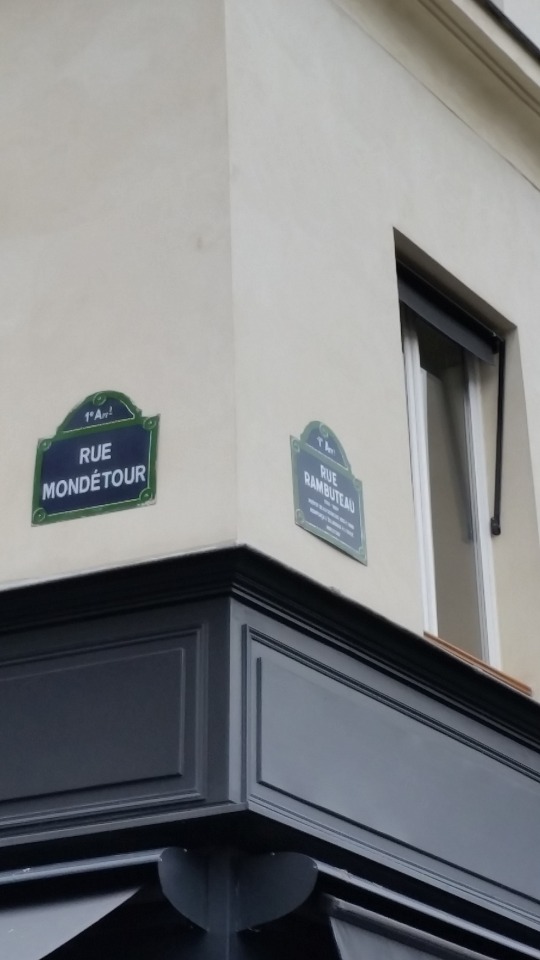

#a year of les mis#volume iv st. denis#book 12 corinthe#chapter 1 history of corinthe from its foundation#4.12.1#277/365#Les Miserables
2 notes
·
View notes
Photo

NAME. Prunelle Lefebvre AGE & BIRTH DATE. 34 & June 20th, 1987 GENDER & PRONOUNS. Female & She/her SPECIES. Witch ( Water + Telepathy ) OCCUPATION. Dancer at Ambrosia FACE CLAIM. Amanda Seyfried
BIOGRAPHY
(TW kidnapping, psychological abuse, violence, murder) This is an Emergency Weather Radio Broadcast. Thunderstorms can be found raging all across parts of Louisiana with some regions expected to get as much as five inches total with some saying they have gusts of wind as strong as thirty mph. Needless to say, plan your next few days of travel accordingly and don’t forget to bring an umbrella.’
June 1987 — Baton Rouge is barely at the start of its hurricane season, the tingle within its air is taut with suffocating humidity and rapid floods. Each day is a mixture between comfortable and too warm, especially for an expecting mother sitting on a hard plastic seat listening to the end of a eulogy. Pearls of thunder rumble the stained-glass windows as individuals in dark mourning attire sit hesitantly around them. Fanning herself lightly, knowing fully that her due date was only days away, a tearful husband sitting next to her and patting the top of her free hand while the other gripped a silk fan. The labor pains had been few and far between. It seemed as though there was nothing to concern themselves with, the baby seeming to be of the more stubborn breed. That is, until she moved to the casket to say her prayers and found her water had broken. A laugh, of all things, escaped her lips instead of worrying cries as those around her moved to her aid. With death comes the beginning of a new life and the following morning, right before dawn, they welcomed their first born. A baby girl with oceanic eyes and a smile that hadn’t even left her in sleep — Prunelle Rosaliné Lefèbvre.
Brought forth by Louisiana socialites, both with a long history tied with France, the young witch enjoyed a life full of plenty and luxury from the moment her sun kissed locks emerged. Wanting for nothing, yet always tinged with this drive for more. Before they knew it, Prunelle was walking and talking fast. She never seemed to have a grasp on where exactly she was going, but she was always in a hurry to get there. Life was fueled by her impulses and it often showed in her energy levels, to the point where her parents were certain she would take after her mother’s lineage. A bloodline that was known for its aversion towards the flame, though time would show the difference between the two and how much she was like her father. Ruled more by her latest wave of emotions rather than the more zealous and logical energy known from the Quinn ménage.
As the years progressed, the family of three quickly grew with the addition of two more young girls. Dubbed by some to be the milk man’s daughter, there was no mistaking her origins once her mouth opened. She led the typical life of anyone under the noble house of Lefèbvre would, at the mercy of the philosophies and practices within the cult of Persephone. Soaking in her parent’s words as if they were gospel, seeing all other avenues as treacherous and placing family above all the rest. Although her fairer features, along with her siblings' chosen element of fire, pushed her towards feeling at moments as if she was an outcast amongst them. There was always a piece of herself that she held close and never felt comfortable sharing with others. Her sisters were there to protect her, to have her back in sticky situations, and keep her from falling too far into her emotions: seeing that vulnerability as more of a weakness. But what intimacy Prunelle couldn’t find in her home life, she found within the structures of her social circles and breed her already turbulent behavior.
Cracks in her foundation and pieces missing, the young witch still attempted to move about life with a rose-tinted outlook. She, like her family, believed wholeheartedly that the goddess herself had given them some kind of edge against all other witches. Hecate may have gifted them with their powers, their chosen craft, but Persephone would grant them a new life. An immortal one that would transform them into the purest form of themselves and only Persephone herself would know when the time was right.
That’s when the murmurs began. So soft and delicate at first, just like the echoes of a stagnant ghost wailing in the midnight fog. Each day the voices grew louder, more lucid and resembling the sounds of those who were near her. Not the goddess speaking to her like she had been so hopeful for, but the private and unshielded minds of anyone within her vicinity. She would make the mistake of answering someone without the words actually leaving their lips, a teen unaware of the manifesting power that she possessed. Stark raving mad, out of one’s head, a few screws loose: Prunelle reluctantly heard it all. Uncomfortable situations after another before slowly learning when and how to tune certain things out. However, much of the damage to her psyche had already been done and it felt like merely placing masking tape on a deep wound. Every praising and malevolent thought from those closest to her had rooted themselves in, no matter how many attempts at scrubbing them away.
Once the witch was on the fringes of adulthood, she took some of her trust fund and headed towards the most sensible location in her mind; Paris. The sounds of the city enthralled Prunelle, looking at the decision as part of her growth, and found kinship through her family's ties to the country of France. Traveling this far from home allowed the distance she desired without being cut off, still influenced by the message that one day— Persephone’s call would grace her. To bide her time, she continued her passion of ballet and enrolled at a local dance studio. Immersing herself as much as possible in what it meant to be a Parisian, along with taking on a more active role within the cult. Her power, even in her youth among her parents' socialite circles, had fascinated them and her emergence in the city hadn’t been ignored. Often sending her on small tasks and gaging how willing the witch was to do as they suggested. It wasn’t until the more serious tasks that the regular compulsion episodes began. Oh, how easy it was to convince her that assisting with a kidnapping or murder was all for the cause. The same ease when exposing her neck by just locking eyes with theirs.
Her years in the European region would continue in much of the same fashion, visiting family back in Baton Rouge when the desire struck, and Prunelle saw no reason to change location until the fall of the veil. The silence she gained when being stripped of her power only planted resentment for being unable to reach her raison d'etre, her purpose. Daphnis’ sacrifice was her gain with its resurgence, though the witch gave the rift no praise and instead thanked Persephone for another chance at her immortal favor. Whispers fluttered in the community that the goddesses' time was near, her shadow being cast upon the city of Corinth, so Prunelle quickly packed her bags and settled in the bayside. Perhaps now, more than ever, the witch can make one’s mark.
PERSONALITY
+ Introspective, pioneering, magnetic. - Obsessive, forceful, fiercely independent.
PLAYED BY CHARLIE. CST. She/Her.
1 note
·
View note
Text
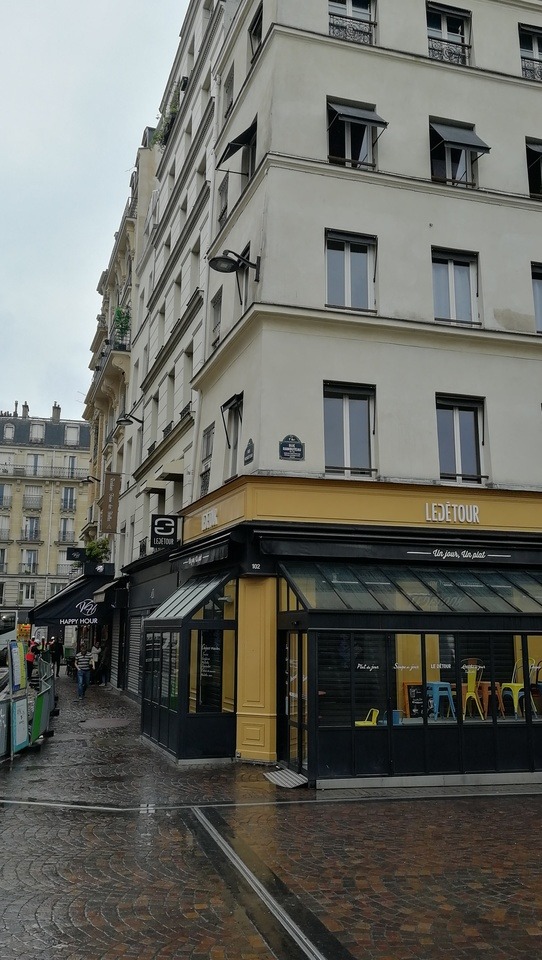
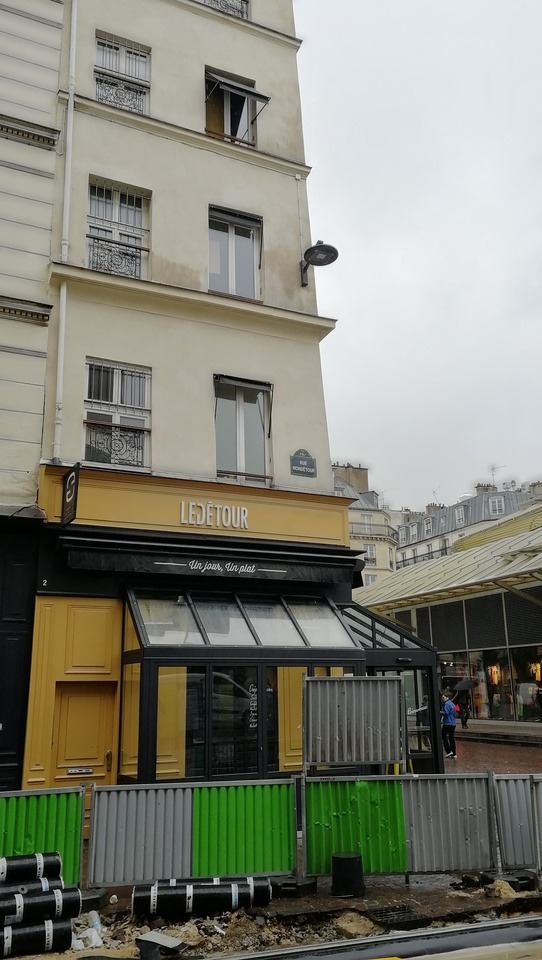
The Corinthe
'The Parisians who nowadays on entering on the Rue Rambuteau at the end near the Halles, notice on their right, opposite the Rue Mondetour, a basket-maker's shop (...) [They] have no suspicion of the terrible scenes which this very spot witnessed hardly thirty years ago.
A room on the ground floor, where the bar was situated, one on the first floor containing a billiard-table, a wooden spiral staircase piercing the ceiling, wine on the tables, smoke on the walls, candles in broad daylight, this was the style of this cabaret.'
- Les Misérables by Victor Hugo, Volume IV - Book Twelfth Corinthe, Chapter I. History of Corinthe from its Foundation
170 notes
·
View notes
Text
BrickClub-4.12.1 The History of Corinth from Its Foundation
Asking me to try and picture streets and buildings is Too Much and I cannot do it. Geography and subsequently Geography Symbolism goes right over my head. Except like, this barricade isn’t even real? But sure let’s shed light on this obscure little place. Okay, Hugo.
We also get a nice Waterloo connection that I’m......unsure about what it all means. But it sure is there.
Sneaky, sneaky describing the interior along with the history almost as if it won’t be important where staircases and billard tables would be. Almost.
We get introduced to Matelote, Gibelotte, and of course, Mame Hucheloup.
Courfeyrac wrote on the door: “Enjoy if you can and eat if you dare.” Which considering the amount of puns that shroud the existence of this place, that doesn’t surprise me.
3 notes
·
View notes
Text
History of Corinthe from its Foundation, part 1
THE Parisians who nowadays on entering on the Rue Rambuteau at the end near the Halles, notice on their right, opposite the Rue Mondétour, a basket-maker's shop having for its sign a basket in the form of Napoleon the Great with this inscription:
NAPOLEON IS MADE
WHOLLY OF WILLOW,
have no suspicion of the terrible scenes which this very spot witnessed hardly thirty years ago.

It was there that lay the Rue de la Chanvrerie, which ancient deeds spell Chanverrerie, and the celebrated public-house called Corinthe.
The reader will remember all that has been said about the barricade effected at this point, and eclipsed, by the way, by the barricade Saint-Merry. It was on this famous barricade of the Rue de la Chanvrerie, now fallen into profound obscurity, that we are about to shed a little light.
May we be permitted to recur, for the sake of clearness in the recital, to the simple means which we have already employed in the case of Waterloo. Persons who wish to picture to themselves in a tolerably exact manner the constitution of the houses which stood at that epoch near the Pointe Saint-Eustache, at the northeast angle of the Halles of Paris, where to-day lies the embouchure of the Rue Rambuteau, have only to imagine an N touching the Rue Saint-Denis with its summit and the Halles with its base, and whose two vertical bars should form the Rue de la Grande-Truanderie, and the Rue de la Chanvrerie, and whose transverse bar should be formed by the Rue de la Petite-Truanderie. The old Rue Mondétour cut the three strokes of the N at the most crooked angles. So that the labyrinthine confusion of these four streets sufficed to form, on a space three fathoms square, between the Halles and the Rue Saint-Denis on the one hand, and between the Rue du Cygne and the Rue des Prêcheurs on the other, seven islands of houses, oddly cut up, of varying sizes, placed crosswise and hap-hazard, and barely separated, like the blocks of stone in a dock, by narrow crannies.

We say narrow crannies, and we can give no more just idea of those dark, contracted, many-angled alleys, lined with eight-story buildings.

These buildings were so decrepit that, in the Rue de la Chanvrerie and the Rue de la Petite-Truanderie, the fronts were shored up with beams running from one house to another.

The street was narrow and the gutter broad, the pedestrian there walked on a pavement that was always wet, skirting little stalls resembling cellars, big posts encircled with iron hoops, excessive heaps of refuse, and gates armed with enormous, century-old gratings. The Rue Rambuteau has devastated all that.
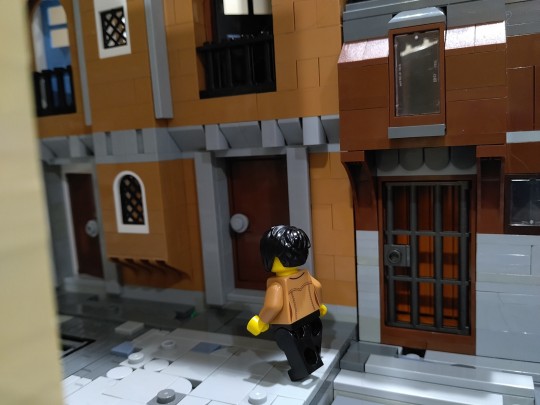
[...] The passer-by who got entangled from the Rue Saint-Denis in the Rue de la Chanvrerie beheld it gradually close in before him as though he had entered an elongated funnel.
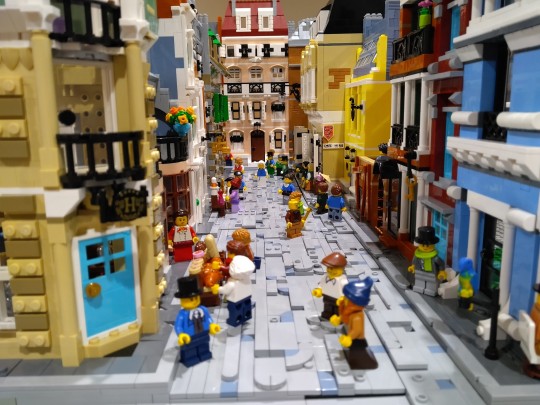
At the end of this street, which was very short, he found further passage barred in the direction of the Halles by a tall row of houses, and he would have thought himself in a blind alley, had he not perceived on the right and left two dark cuts through which he could make his escape. This was the Rue Mondétour, which on one side ran into the Rue de Prêcheurs, and on the other into the Rue du Cygne and the Petite-Truanderie. At the bottom of this sort of cul-de-sac, at the angle of the cutting on the right, there was to be seen a house which was not so tall as the rest, and which formed a sort of cape in the street. It is in this house, of two stories only, that an illustrious wine-shop had been merrily installed three hundred years before.

In the time of Mathurin Regnier, this cabaret was called the Pot-aux-Roses, and as the rebus was then in fashion, it had for its sign-board, a post (poteau) painted rose-color. In the last century, the worthy Natoire, one of the fantastic masters nowadays despised by the stiff school, having got drunk many times in this wine-shop at the very table where Regnier had drunk his fill, had painted, by way of gratitude, a bunch of Corinth grapes on the pink post. The keeper of the cabaret, in his joy, had changed his device and had caused to be placed in gilt letters beneath the bunch these words: "At the Bunch of Corinth Grapes (Au Raisin de Corinthe"). Hence the name of Corinthe. Nothing is more natural to drunken men than ellipses. The ellipsis is the zig-zag of the phrase. Corinthe gradually dethroned the Pot-aux-Roses. The last proprietor of the dynasty, Father Hucheloup, no longer acquainted even with the tradition, had the post painted blue.
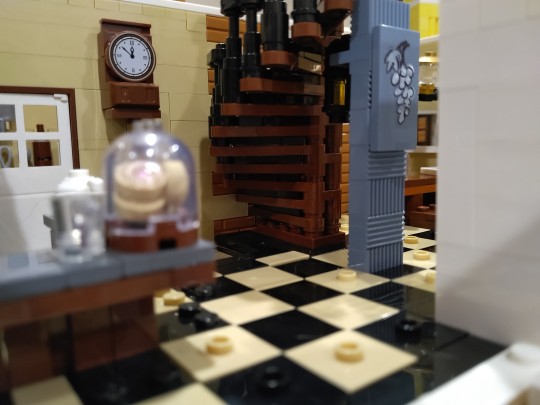
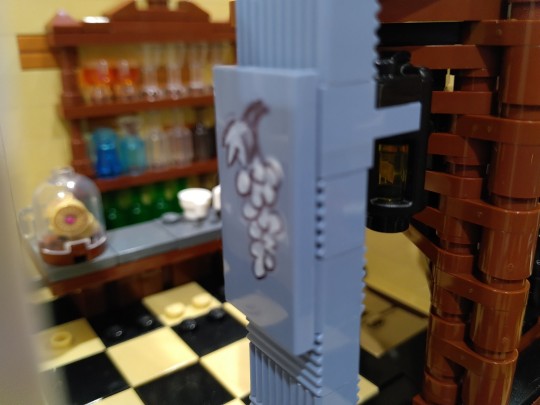
43 notes
·
View notes
Text
Herodotus and his World

Herodotus and his World: Essays from a Conference in Memory of George Forrest
Peter Derow and Robert Parker
ABSTRACT
This book contains detailed studies of a number of individual passages and episodes (which always turn out to have wider ramifications for the understanding of Herodotus or for the history of the archaic and classical Greek world, or both) as well as considerations of wider themes (perceptions of ethnicity and ideas of ‘tradition’, of historical space and about the origins of history). Topics included are: prophecy, oracle-selling, and resurrection, and also narrative management and the prosaics of death. The Herodotean chronology is revisited. There are also accounts on epiphany, and of why Herodotus did not mention the Hanging Gardens and why he has not been taken as seriously as he should have been by military historians. Finally, the book examines Cleisthenes and Cleomenes, Argos and Corinth, and Athens and its democracy.
Contents
Part I Narrative
1 Authorial Voice and Narrative Management in Herodotus
Roger Brock
2 Pedestrian Fatalities: The Prosaics of Death in Herodotus
Deborah Boedeker
3 Panionios of Chios and Hermotimos of Pedasa (Hdt. 8. 104–6)
Simon Hornblower
4 Herodotean Chronology Revisited
P. J. Rhodes
5 Who Was Actually Buried in the First of the Three Spartan Graves (Hdt. 9. 85. 1)? Textual and Historical Problems
Dwora Gilula
6 The Oldest ‘New’ Military Historians: Herodotos, W. G. Forrest, and the Historiography of War
Eugenia C. Kiesling
Part II Peoples and Places
7 Herodotos (and others) on Pelasgians: Some Perceptions of Ethnicity
Christiane Sourvinou-Inwood
8 Herodotus’ Conception of Historical Space and the Beginnings of Universal History
Josémiguel Alonso-núñez
9 ‘Tradition’ in Herodotus: The Foundation of Cyrene
Irad Malkin
10 Why Did Herodotus not Mention the Hanging Gardens of Babylon?
Stephanie Dalley
11 (Hdt. 6. 108. 1)
Angelos P. Matthaiou
12 Herodotos (8. 137–8), The Manumissions from Leukopetra, and the Topography of the Middle Haliakmon Valley
Miltiades Hatzopoulos
13 Cleisthenes (of Athens) and Corinth
John Salmon
Part III Religion
14 ‘Prophecy in reverse’? Herodotus and the Origins of History
Thomas Harrison
15 Oracles for Sale
Hugh Bowden
16 The Common Oracle of the Milesians and the Argives (Hdt. 6. 19 and 77)
Marcel Piérart
17 Herodotus and the ‘Resurrection’
John Gould
Part IV Herodotus and Athens
18 Herodotos and Athens
Robert Fowler
19 Democracy without Theory
John K. Davies
Herodotus and His World: Essays from a Conference in Memory of George Forrest 1st Edition by Peter Derow (Editor), Robert Parker (Editor) Oxford University Press, 2003
Source: https://oxford.universitypressscholarship.com/view/10.1093/acprof:oso/9780199253746.001.0001/acprof-9780199253746-chapter-10
0 notes
Text
IV.xii.1 Histoire De Corinthe Depuis Sa Fondation
History of Corinth From its Foundation: Wilbour, Wraxall, Jolivet, Denny
History of Corinthe From Its Foundation: Hapgood, Rose, Donougher
History of Corinth Since its Foundation: FMA
4 notes
·
View notes
Text
Top 5 places to visit in Greece
Greece is packed with ancient history and known for its plethora of ancient ruins; it is the birthplace of western civilisation, democracy and philosophy, not forgetting the origin of the Olympic Games. It has a significant culture and history like no other country. Today it is a major tourist destination, renowned for whitewashed buildings, sandy beaches, crystal clear waters and tasty cuisine. Here are the top 5 places you must visit in Greece to get the best experience of ancient culture and stunning coastlines.
Acropolis, Athens
If you were told to envision a picture of Athens, the Acropolis will almost definitely be the first thing you will think of. It is the most monumental complex that still exists to this day, and a universal symbol of ancient Greek architecture. It sits on a mountain overlooking the capital city, whilst making visitors feel superior when looking down at the rest of the Athens. It is an accurate reflection of power and wealth of a once Greek Empire. The Acropolis was completed in the 5th Century BC and originally the Temple of Athena Nike. Now it is a major tourist attraction and a UNESCO World Heritage Site, where thousands of visitors climb the famous stone steps and indulge in the classical ambiance, whilst surrounded by spectacular views of a metropolitan city.
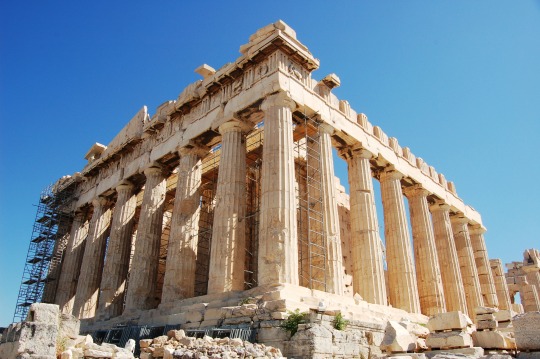
Flickr | Tim Zoll
The Acropolis can get very busy all year around so it is best to arrive early, especially in the height of the summer when temperatures can rise to over 30 degrees. What’s more is that there is a brand new Acropolis Museum at the bottom of the mountain, containing archaeological ruins that are too precious to be left at the site. This museum contains the famous Elgin Marbles, which were once home to the Acropolis. Unfortunately, the collection is almost incomplete, with the rest of the Elgin Marbles in the British Museum, causing ongoing controversy with the Greek and British governments. Nevertheless, the Acropolis Museum is perfect for history and archaeological lovers, and the only museum built on top of real archaeological excavations!

Flickr | brownpau
Delphi
If you thought the Acropolis was the only site filled with ancient history, then you haven’t heard of Delphi. It is here in ancient times that was once referred to as the centre of the earth. In fact, this place is the home to Greek mythology, where Apollo was considered an important oracle. In ancient times, people would come to this spot and ask the superior emperors for advice and confess their sins. It is now a UNESCO World Heritage Site, again having remarkable inspiration in the ancient world; left behind are remains of the Temple of Apollo, The Treasury of Athenians and an ancient theatre. Needless to say, if you love a bit of culture and ancient history, it’s the place for you! It is located in the slopes of Mount Parnassus, approximately two hours from Athens, overlooking the beautiful coastal plain of Corinth. The most famous ruin is the Temple of Apollo, dated back to the 4th Century BC; the column foundations are of porous limestone, a reason for the temple’s fast decaying over the years, with only six columns left to this date. The theatre is by far the most photograph worthy ruin at Delphi, with hundreds of steps leading up to it. This dates back to the 4th Century, being an ancient host to musical contests at the Pythian Games. The views from the theatre are breath-taking vegetated mountains. When standing in the middle of it, it feels so surreal, as though you have travelled back in time!
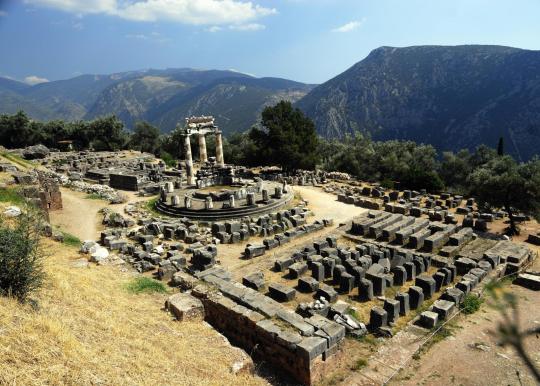
Flickr | Paul Jenkins
Santorini
This one of the most remarkable Greek Islands; the whitewashed buildings with blue roofs, cobble paths and stunning sun sets truly make this island magical! Lonely Planet calls Santorini the ‘supermodel of the Greek Islands’, no surprise due to the amount of A-list celebrities who visit! It’s been visited by Jennifer Aniston, George Clooney and the Kardashians in the past few years, and they have definitely put the island on the map as it is now the most renowned Greek island. Santorini is outstanding when it comes to sunsets, stunning panoramas and volcanic-sand beaches, all of which could in fact be the best in Europe. Believe it or not, Santorini is the remains of a volcanic eruption that destroyed the former settlement, leaving behind a water filled caldera that surrounds the island.
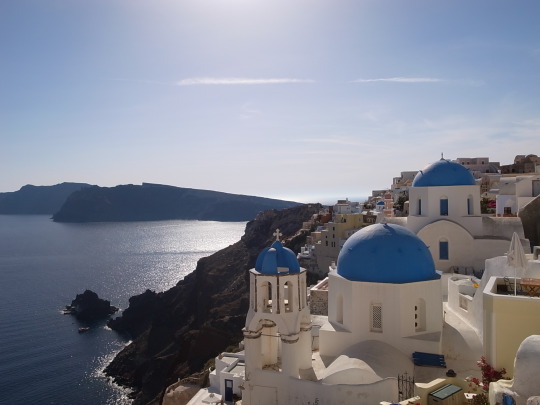
Flickr | Maggie Meng
For those who love to relax on holiday, it’s the place for you! You can lay on the white-sand beaches, indulge in the Mediterranean sun or enjoy the hotel infinity pool looking out into the crystal clear water. For nature lovers, there are many boat trips and cruises which take you to the former crater and hot springs. You can hike the volcano, swim at the red beach and watch the sunset from the greatest place in Europe, the ‘Oia cliffs’. If you are feeling more adventurous, you can take a 30-minute helicopter flight over the stunning island, gazing over the incredible caldera from a birds-eye view, as well as fly over the idyllic whitewashed villages. This is the perfect opportunity to take photographs of the island! Meteora
If you’re a geography lover, you will adore the nature beauty of this mountainous area. Meteora is a spectacular rock formation in central Greece and one of the largest built complexes sitting on top of natural pillars and boulders that dominate the panorama; it is home to six Orthodox monasteries, built in the 1400’s. As you can see, the pictures of Meteora look very illusory, almost something from an animated film! In fact, this location features in many films such as the 1981 James Bond ‘For Your Eyes Only’, as well as the setting for the Call of Duty: Modern Warfare 3 map. Believe it or not, it was once a place believed to be sculpted by God, for monks who sought immortal life.
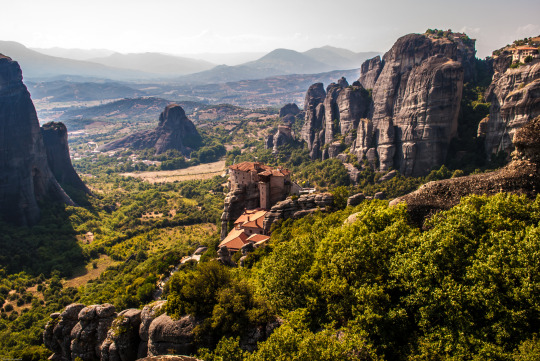
Flickr | Dušan Šteharnik
Today, you can discover the hidden treasures of the area on a hiking adventure! This hike will take you up to the tallest point, 400m above the town of Kalampaka, through ancient winding paths; these are the same paths the monks once walked though on their daily adventures. There are breath-taking views that you will never forget, especially the sunset. There are a few different tours, including transport from the big cities such as Athens and Thessaloniki so it is easy to arrange. If you love nature, sunsets and rock formations, you can’t miss out on this experience when travelling Greece.
Samaria Gorge, Crete
Not only is this one of the longest gorges in Europe, it is Crete’s only national park and should be the top of the must-dos when travelling to the Greek Islands. The 16km long phenomenon is a must for visitors, especially to complete a 13km walk down the gorge to Agis Roumeli, neighbouring the Libyan Sea; this is where tourists can sail to other nearby villages and embrace the culture of the small fishing towns. Lucky for us, local tour operators provide organised tours so you are not on your own. The walk takes five to seven hours with amazing waterfalls and picnic areas to stop off at, but it can be strenuous so a somewhat degree of fitness is required, however a shorter route is advised for those who would prefer it, especially in the height of the summer. This attraction really does save the best bit till last, where there is a very narrow passage near the end called the ‘Iron Gates’ with sides closing up to only 4 metres width and a height of almost 300 metres. The most surreal feeling is looking up at this point, and seeing a thin strip of daylight contrasting against the sandstone rocks!
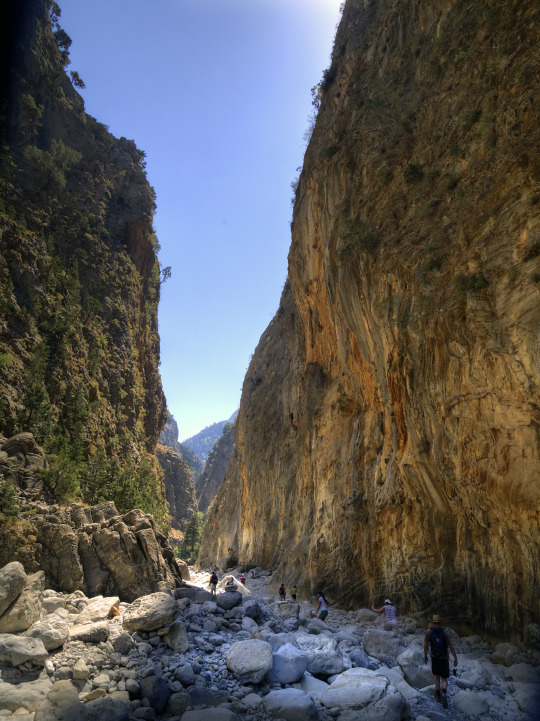
Flickr | Jim Thurston
Greece has so many hidden gems that are somewhat neglected by the popular Greek Island hotel resorts. There is so much more to Greece than the precious white sand beaches that the islands have to offer. As you can see from these 5 places, there is so much ancient culture and natural beauty, which not many people know about. Why not see Greece from a different perspective and visit these mysterious attractions!
64 notes
·
View notes
Photo
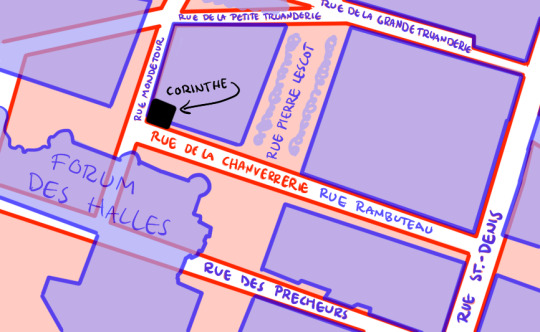
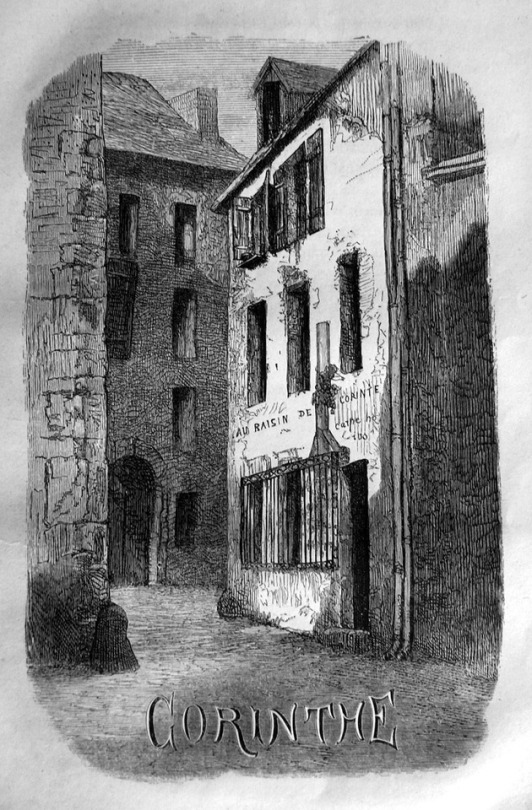
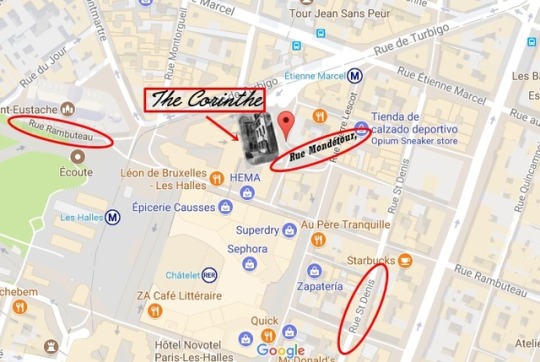
Maps: Paris 1832/Paris today
Persons who wish to picture to themselves in a tolerably exact manner the constitution of the houses which stood at that epoch near the Pointe Saint-Eustache, at the northeast angle of the Halles of Paris, where to-day lies the embouchure of the Rue Rambuteau, have only to imagine an N touching the Rue Saint-Denis with its summit and the Halles with its base, and whose two vertical bars should form the Rue de la Grande-Truanderie, and the Rue de la Chanvrerie, and whose transverse bar should be formed by the Rue de la Petite-Truanderie. The old Rue Mondetour cut the three strokes of the N at the most crooked angles. So that the labyrinthine confusion of these four streets sufficed to form, on a space three fathoms square, between the Halles and the Rue Saint-Denis on the one hand, and between the Rue du Cygne and the Rue des Precheurs on the other, seven islands of houses, oddly cut up, of varying sizes, placed crosswise and hap-hazard, and barely separated, like the blocks of stone in a dock, by narrow crannies.
Chapter I. History of Corinthe from its Foundation
1 note
·
View note
Text
Day 20: Sunday, July 9. Approaching the last station.
The bus ride from Ioannina to Arta is a 44-mile journey south along European route E951 (Greek route EO5), whose southern terminus is the town of Antirrio, on the Strait of Rio between the Gulfs of Patras and Corinth. The road traces the Pindus mountain range, which is home to six of Greece’s eight highest mountains. Along this stretch, however, the mountains are less prominent, but there are more of them - Tomaros is off to the right of the road, Xerovouni is off to the left, and the impressive Athamanika sub-range is just beyond it. They are no Olympus, but Olympus is a point standing alone. Here, the peaks form the sturdy spine of Greece.
Arta (pop. 24,427) was known as Ambracia in the Hellenistic period, during which it served as the capital of Pyrrhus of Epirus’ kingdom. It was incorporated into Rome in the mid-2nd century BC, and became Arta under the Byzantines a millennium later. That legacy is readily apparent in the Church of the Parigoritissa, the Monastery of Saint Theodora, and the castle at the city’s northern tip. The Arachthos, which flows around the city, is spanned by a picturesque four-arch stone bridge in the southwest corner. The current bridge is an Ottoman construction on the site of previous Roman and Byzantine structures. There is a legend associated with it: when it was being built, its foundations would collapse each night. A bird with a human voice informed the chief builder that, in order for the bridge to remain standing, he should sacrifice his wife. As she was being buried alive in the foundations, she cursed the bridge to flutter like a leaf, and those who pass it to fall like leaves as well. But she was then reminded that her brother was currently abroad and might pass the bridge on his return, so she changed her curse into a blessing. Immurement during the construction of buildings is a common motif in Balkan folklore.
A taxi takes A. D. from the Arta bus terminal to Hotel Marathia, about five miles northwest of the city in the village of Chanopoulo. The driver, a lively older man, takes his time getting out of the city in order to tell its history and point out landmarks. After pausing at the bridge, he speeds down a country road that is surrounded by farmland on one side and hills on the other. The hotel is nestled in a grove at the foot of a hill, with plenty of shade and a clear view of the sunset. A. D. is greeted at the entrance by a young woman who checks him in and says that she is the fourth generation of the family that owns the hotel (since 1955). Her father comes down to the lobby and warmly introduces himself before taking A. D. up to his room. With its two beds and a balcony that looks out over the trees, onto the plain and setting sun beyond them, it is entirely too much.
Later in the evening, at dinner, A. D. meets the other volunteers, all from the UK: C. J., T. O., and I. S., a college-aged group of friends; S. M., who is a couple of years older than A. D.; and an older man, J. C. Though she has been staying in an apartment in Filippiada nearby, E. P. stops by briefly to say hello. She is from the Netherlands, and has been with RS in Greece for close to a year. It is good to put a face to the name of A. D.’s primary point of contact since Ioannina/Katsikas.
So it is in Chanopoulo, on the 9th of July.
0 notes